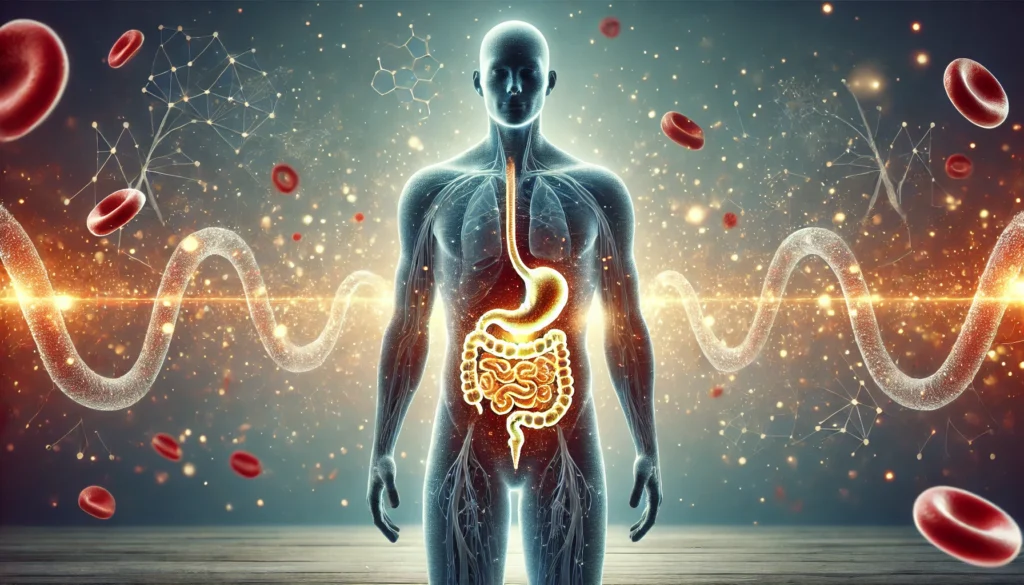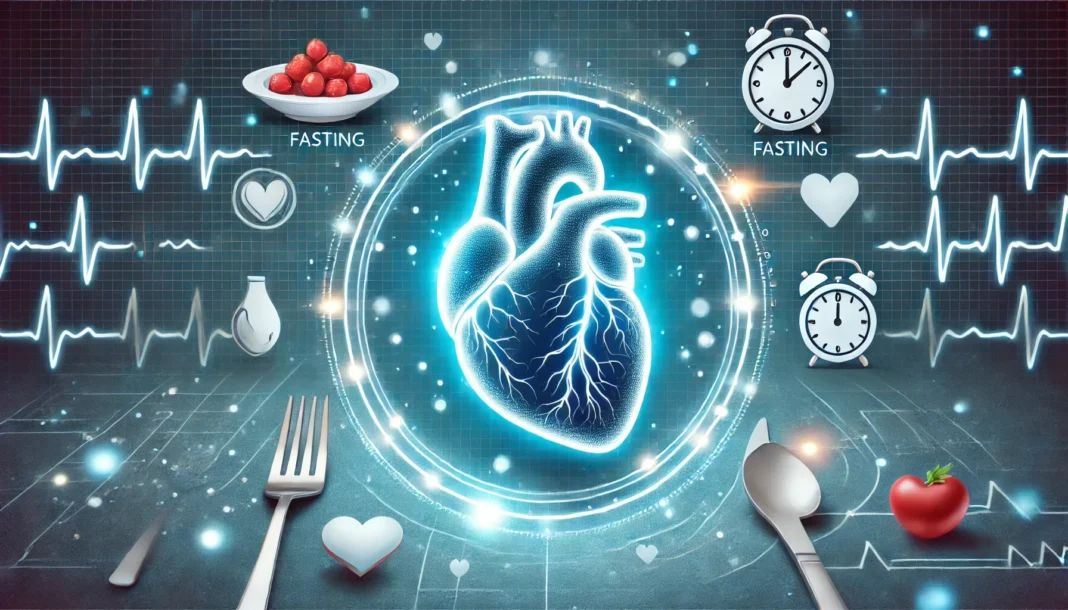Introduction
Cholesterol plays a critical role in human health, but imbalanced levels can lead to serious cardiovascular conditions. In the pursuit of effective and sustainable ways to manage cholesterol, fasting has emerged as a compelling area of scientific interest. Many wonder, can fasting reduce cholesterol? Does fasting lower cholesterol significantly enough to improve heart health? Researchers and medical professionals have explored the connection between fasting and lipid metabolism, uncovering mechanisms by which periods of abstention from food may contribute to cardiovascular well-being.
Fasting has been practiced for centuries for both religious and health-related reasons, but only in recent years has modern medicine begun to recognize its potential impact on cholesterol and overall heart health. Many proponents of fasting argue that it provides a quick way to reduce blood sugar and cholesterol by fasting intermittently or over extended periods. Yet, not all fasting methods produce the same results, and individual physiological responses may vary. As research advances, a deeper understanding of how fasting lowers cholesterol levels and influences cardiovascular risk factors continues to develop.
This article examines the physiological mechanisms behind fasting and cholesterol metabolism, evaluates the scientific evidence supporting its role in heart health, and offers insights into the practical applications of fasting as a cholesterol-lowering strategy. By understanding how different fasting protocols affect lipid levels, individuals can make informed decisions about incorporating fasting into their lifestyle for better cardiovascular outcomes.
You May Also Like: The Healthiest Foods to Eat Every Day for Optimal Wellness
Understanding Cholesterol and Its Role in the Body
Cholesterol is a lipid molecule essential for various physiological functions, including hormone production, cell membrane integrity, and bile acid synthesis. It is transported through the bloodstream by lipoproteins, primarily low-density lipoprotein (LDL) and high-density lipoprotein (HDL). LDL is often referred to as “bad cholesterol” because high levels contribute to plaque formation in the arteries, increasing the risk of cardiovascular disease. In contrast, HDL is known as “good cholesterol” because it helps remove excess cholesterol from the bloodstream, reducing arterial plaque buildup.
Triglycerides, another type of blood lipid, are closely linked to cholesterol metabolism and are influenced by dietary intake and metabolic processes. Elevated triglyceride levels, in conjunction with high LDL and low HDL levels, significantly increase cardiovascular risk. Managing cholesterol effectively requires a comprehensive approach, encompassing diet, physical activity, and sometimes medication. However, recent research suggests that fasting lowers cholesterol by altering metabolic pathways and reducing the body’s reliance on dietary sources of lipids.
The Science Behind Fasting and Cholesterol Metabolism
Fasting triggers a shift in energy metabolism, leading the body to utilize stored fats for energy once glycogen reserves are depleted. This metabolic transition, known as ketosis, encourages the breakdown of triglycerides into free fatty acids and ketone bodies. As lipid metabolism accelerates, cholesterol synthesis and transport are also affected, often resulting in favorable changes in lipid profiles.
Research indicates that various fasting protocols can influence cholesterol levels in different ways. Intermittent fasting (IF), alternate-day fasting (ADF), and prolonged fasting all exert unique effects on lipid metabolism. For example, intermittent fasting—characterized by alternating periods of eating and fasting—has been associated with reductions in LDL cholesterol and triglycerides, while preserving or even increasing HDL cholesterol levels. This effect is largely attributed to enhanced lipolysis, improved insulin sensitivity, and decreased hepatic cholesterol production.
One proposed mechanism by which fasting reduces cholesterol involves the reduction of insulin levels. Insulin plays a role in cholesterol synthesis by activating the enzyme HMG-CoA reductase, which regulates cholesterol production in the liver. Lower insulin levels during fasting inhibit this enzyme, leading to decreased endogenous cholesterol synthesis. Additionally, fasting promotes autophagy, a cellular process that recycles damaged proteins and lipids, further contributing to cholesterol regulation.

Scientific Evidence on Fasting and Cholesterol Reduction
Numerous studies have investigated the impact of fasting on cholesterol levels. A systematic review published in the Journal of Clinical Lipidology analyzed data from multiple trials and found that intermittent fasting led to significant reductions in LDL cholesterol and triglycerides while maintaining stable HDL levels. Another study in the American Journal of Clinical Nutrition demonstrated that alternate-day fasting improved lipid profiles and reduced inflammatory markers associated with cardiovascular disease.
A study conducted by Harvie et al. (2011) compared intermittent fasting with continuous calorie restriction and found that both approaches resulted in similar reductions in LDL cholesterol and triglycerides. However, intermittent fasting was associated with greater improvements in insulin sensitivity, which plays a crucial role in overall cardiovascular health.
Additionally, research on Ramadan fasting—a month-long period of intermittent fasting observed by millions of Muslims worldwide—has provided valuable insights into the effects of fasting on cholesterol levels. Studies indicate that Ramadan fasting often leads to decreased total cholesterol and LDL levels, while HDL cholesterol remains stable or increases. This suggests that even short-term fasting interventions can yield beneficial effects on lipid metabolism.
Despite these promising findings, some studies have reported inconsistent results, particularly concerning HDL cholesterol. While some research indicates that fasting preserves or increases HDL levels, other studies suggest a neutral or slightly negative effect. These discrepancies may be attributed to variations in fasting duration, dietary composition during eating periods, and individual metabolic differences.
Comparing Fasting to Traditional Cholesterol-Lowering Strategies
Traditional approaches to lowering cholesterol typically involve dietary modifications, physical activity, and pharmacological interventions such as statins. While these methods have been well-documented for their efficacy, fasting presents a unique, non-pharmacological alternative that can be integrated into a holistic lifestyle approach to cardiovascular health.
Dietary strategies for cholesterol management often emphasize reducing saturated fats, increasing fiber intake, and consuming more polyunsaturated and monounsaturated fats. While effective, these dietary changes require consistent adherence, and results may take time to manifest. In contrast, fasting provides a structured approach that can yield rapid improvements in lipid profiles, particularly for individuals struggling with dietary compliance.
Exercise is another cornerstone of cholesterol management, as it enhances HDL cholesterol levels and promotes the utilization of stored fats for energy. Interestingly, fasting and exercise share metabolic similarities, both triggering lipolysis and improving insulin sensitivity. Combining fasting with regular physical activity may produce synergistic effects on cholesterol reduction and overall cardiovascular health.
Pharmacological interventions, such as statins, are highly effective at lowering LDL cholesterol and reducing cardiovascular risk. However, they may be associated with side effects, including muscle pain, liver enzyme elevations, and an increased risk of diabetes. For individuals seeking natural alternatives or complementary strategies, fasting may offer a viable option with minimal adverse effects.
Practical Considerations for Incorporating Fasting into a Cholesterol-Lowering Regimen
For individuals interested in using fasting as a means to lower cholesterol, selecting an appropriate fasting protocol is crucial. Intermittent fasting, with its flexibility and ease of adherence, is a popular choice for beginners. The 16:8 method, which involves fasting for 16 hours and eating within an 8-hour window, is widely practiced and has been associated with improved lipid profiles. Alternate-day fasting and prolonged fasting (24-48 hours) may provide more pronounced cholesterol-lowering benefits but require greater discipline and medical supervision.
Hydration and nutrient intake during fasting periods are important considerations. While fasting lowers cholesterol by promoting lipid metabolism, consuming nutrient-dense foods during eating windows supports overall cardiovascular health. Emphasizing whole foods, lean proteins, healthy fats, and fiber-rich carbohydrates can enhance the benefits of fasting and prevent potential nutrient deficiencies.
Individuals with pre-existing health conditions or those taking medications should consult healthcare professionals before adopting fasting. While fasting is generally safe for healthy individuals, it may not be suitable for those with diabetes, metabolic disorders, or certain cardiovascular conditions.

Frequently Asked Questions (FAQ) on Fasting and Cholesterol Reduction
1. How does fasting influence cholesterol levels at a cellular level?
Fasting triggers metabolic adaptations that enhance lipid breakdown and utilization. When the body is deprived of external energy sources, it shifts to using stored fats, including cholesterol, for energy. This process, known as ketosis, increases lipolysis, breaking down triglycerides and reducing LDL cholesterol levels. Additionally, fasting stimulates autophagy, a cellular process that recycles old and damaged lipoproteins, contributing to a healthier cholesterol profile. These cellular mechanisms explain why many people find fasting lower cholesterol levels in both short-term and prolonged fasting regimens.
2. Can fasting reduce cholesterol in individuals with a genetic predisposition to high cholesterol?
Yes, but the extent varies based on individual genetic factors. Familial hypercholesterolemia, a genetic condition characterized by high LDL cholesterol, often requires medication in addition to lifestyle modifications. However, intermittent fasting has shown promise in improving lipid metabolism by enhancing the clearance of LDL particles from the bloodstream. Studies suggest that while fasting alone may not be sufficient for those with severe genetic predispositions, it can serve as a complementary strategy when combined with dietary adjustments and prescribed cholesterol-lowering medications. In such cases, consulting a healthcare provider is crucial before implementing fasting as a primary intervention.
3. What are the best fasting methods for lowering cholesterol?
Several fasting methods have been studied for their effects on cholesterol. Intermittent fasting (such as the 16:8 method) is widely practiced and offers gradual cholesterol reduction by improving insulin sensitivity and lipid metabolism. Alternate-day fasting has been shown to produce significant reductions in LDL cholesterol and triglycerides in some individuals. Extended fasts of 24-48 hours can provide deeper metabolic shifts, further reducing cholesterol synthesis in the liver. However, the best approach depends on individual health conditions, dietary habits, and lifestyle compatibility. Those looking for a quick way to reduce blood sugar and cholesterol by fasting may benefit from combining fasting with a whole-food, plant-based diet rich in fiber and healthy fats.
4. How quickly can fasting lower cholesterol levels?
The timeframe for noticeable cholesterol reductions varies depending on the fasting protocol, baseline cholesterol levels, and overall diet. Some studies suggest that individuals may experience a measurable decrease in LDL cholesterol within two to four weeks of consistent intermittent fasting. More prolonged fasting regimens can lead to reductions in as little as 10-14 days, particularly when combined with a low-saturated-fat diet. However, long-term maintenance is key, as cholesterol levels can rebound if fasting is discontinued without sustained dietary improvements. Regular monitoring through lipid panels can help track progress and optimize fasting strategies.
5. Does fasting lower cholesterol more effectively than conventional diets?
Fasting and conventional cholesterol-lowering diets both have their advantages. Traditional approaches, such as the Mediterranean or DASH diet, focus on sustained dietary modifications that lower cholesterol over time. Fasting, on the other hand, offers a unique metabolic shift that can accelerate cholesterol reduction by promoting fat oxidation and reducing hepatic cholesterol production. Some research indicates that fasting may be equally or even more effective than calorie-restricted diets in certain individuals. However, the best outcomes often come from combining fasting with a heart-healthy diet rather than relying solely on one method.
6. Can fasting negatively affect cholesterol levels in some individuals?
While fasting is beneficial for most people, some individuals may experience an initial rise in cholesterol levels, particularly during the early phases of fasting adaptation. This is due to the mobilization of stored fats, temporarily increasing circulating LDL cholesterol before it is metabolized for energy. Additionally, those who break fasts with high-fat, high-sugar meals may counteract fasting’s cholesterol-lowering benefits. To ensure positive outcomes, it is crucial to follow a balanced diet during eating windows and monitor cholesterol changes with medical supervision if pre-existing conditions are present.
7. How does fasting impact HDL (good) cholesterol?
The effects of fasting on HDL cholesterol are variable. Some studies report increased HDL levels due to enhanced lipid metabolism, while others indicate neutral effects. HDL plays a vital role in cholesterol transport and removal from the bloodstream, so maintaining or increasing its levels is beneficial. Fasting improves insulin sensitivity and reduces inflammation, which can indirectly support HDL function. However, to maximize HDL benefits, individuals should complement fasting with aerobic exercise and consumption of healthy fats, such as those found in avocados, nuts, and olive oil.
8. Is fasting safe for individuals on cholesterol-lowering medications?
Fasting can be practiced by those on cholesterol-lowering medications, but medical supervision is advised. Statins and other lipid-lowering drugs work by inhibiting cholesterol synthesis in the liver, a process that fasting also influences. In some cases, fasting may enhance the effects of these medications, potentially necessitating dosage adjustments. Individuals taking medications should monitor their lipid profiles regularly and consult their healthcare provider before making significant changes to their fasting regimen. Hydration and proper electrolyte balance during fasting periods are also essential to avoid potential side effects.
9. What role does hydration play in fasting-induced cholesterol reduction?
Hydration is often overlooked but plays a crucial role in cholesterol metabolism during fasting. Water supports the liver’s ability to process and eliminate cholesterol through bile production. Additionally, staying hydrated prevents excessive oxidative stress, which can negatively impact lipid profiles. Consuming herbal teas, electrolyte-infused water, and bone broth during fasting periods can help maintain hydration and support metabolic function. Proper hydration also reduces the likelihood of experiencing dizziness or fatigue, common side effects when starting a fasting regimen.
10. What emerging research suggests about fasting and long-term cholesterol management?
Emerging research continues to explore fasting’s long-term effects on cholesterol and cardiovascular health. Some studies suggest that prolonged fasting may induce beneficial epigenetic changes that enhance lipid regulation beyond immediate cholesterol reduction. Research is also investigating how fasting affects gut microbiota composition, which plays a role in lipid metabolism and inflammation control. Scientists are exploring whether specific fasting protocols could be tailored for individuals with metabolic disorders to optimize cholesterol outcomes. As more data emerges, fasting’s role in preventive cardiology may become more prominent, potentially reshaping conventional approaches to cholesterol management.

Conclusion
Fasting represents a promising strategy for cholesterol reduction and overall heart health. By triggering metabolic shifts that enhance lipid metabolism, fasting lowers cholesterol levels while improving insulin sensitivity and reducing inflammation. Scientific evidence supports its efficacy, although individual responses may vary based on fasting duration, dietary habits, and metabolic health. For those seeking a natural, effective approach to cholesterol management, fasting provides a compelling alternative or complementary strategy to traditional methods. As research continues, fasting’s role in cardiovascular health will likely gain further recognition, solidifying its place in modern preventive medicine.
cholesterol management strategies, lipid metabolism and fasting, intermittent fasting benefits, heart-healthy diet tips, lowering LDL naturally, triglyceride reduction methods, fasting and metabolic health, autophagy and cholesterol, insulin sensitivity improvement, cardiovascular wellness techniques, dietary approaches to heart health, natural ways to lower cholesterol, fasting and inflammation control, cholesterol-lowering meal plans, liver function and fasting, HDL cholesterol enhancement, weight loss and cholesterol, ketogenic diet and heart health, metabolic flexibility and lipid profiles, prolonged fasting effects on health
Further Reading:
INTERMITTENT FASTING AND HUMAN METABOLIC HEALTH
The Effect of Fasting on Human Metabolism and Psychological Health


